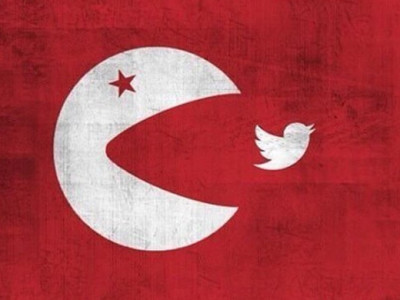Turkish government threatens to block Twitter in country

Almost every day, there are reports about how in a particular country the authorities are trying to regulate the Internet, guided by their own considerations. Once again, this marked Turkey. In terms of Internet freedom, this country has an already unimportant statistic , now it can sink even more.
The Twitter microblogging network may be turned off in Turkey for the second time in a year if the service’s management refuses to block a left-wing newspaper account publishing a police operation, which in January 2014 detained trucks belonging to the national intelligence of Turkey and heading to Syria. As reported , they found weapons that could be targeted for militants who are fighting with the government of Bashar al-Assad.

')
The demand to block Twitter was followed the next day after a local court in Adana, a province in southern Turkey, banned coverage of an incident investigation anywhere, making it clear that social networks with documents on the progress of the case will be completely blocked.
According to the court, the publication of information about the investigation threatens national security and interferes with the investigation. The Turkish government has completely denied opposition claims that trucks transported weapons to opponents of the regime of Syrian President Bashar Assad. According to them, the cargo was humanitarian aid addressed to the Syrian Turkmen involved in the conflict in Syria.
The New York Times , citing Turkish media reports that the social networks Twitter , Facebook and Google Plus made a court decision and deleted the contents of the investigation to avoid blocking in Turkey. However, the opposition newspaper BirGün , as well as some other Twitter users, continue to post messages that violate the ban.
Twitter refused to block the BirGün account completely, deleting only a few messages that contained photographs of the documents stating that the police confirmed that the trucks contained weapons and explosives. In addition, the documents state that the weapons were intended for al Qaeda.
“Of the nearly sixty thousand tweets on behalf of this account, Twitter blocked only a small amount in Turkey,” said Twitter representative Nu Wexler. “We continue to work diligently to protect the rights of our users and to maintain access [to the network] of millions of Turkish Twitter users.”
In March last year, Twitter and YouTube were blocked in Turkey after the documents were posted on these services, which were allegedly the plans of the Turkish government to carry out a secret military operation in Syria.
Access to Twitter was restored two weeks later, access to YouTube only in two months.
In connection with these events a small survey.
Source: https://habr.com/ru/post/375597/
All Articles